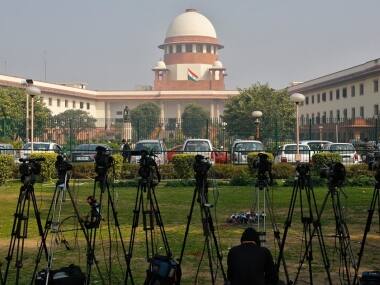According to latest reports, the Supreme Court has agreed to hear Centre's review petition in open court against the top court's earlier judgment on the Scheduled Caste/Scheduled Tribe Prevention of Atrocities Act. The news comes a day after the Chief Justice of India (CJI) Dipak Misra on Monday declined to hear an urgent plea on the ruling to do with the SC/ST Act. The hearing will be held at 2 pm on Tuesday. Attorney-General KK Venugopal is reported to have requested the hearing to be held on Tuesday itself.
The apex court agreed to hear the review petition after Venugopal referred to large-scale violence and loss of lives and property during Monday's Bharat Bandh. A bench headed by Chief Justice Dipak Misra agreed to constitute the bench of Justice AK Goel and Justice UU Lalit to hear the review plea.
At least, eight people died in several incidents of violence across North India during the bandh which was called by several Dalit organisations protesting against the top court's order.
The Centre on Monday formally filed its review petition in the Supreme Court against the apex court's ruling which sought a review of the recent judgment by which safeguards were put on arrests under the act. The ruling government, in the plea, sought restoration of the SC/ST Act provisions that made certain offences cognisable and non-bailable.

File image of Supreme Court. Reuters
The Centre on Monday had moved the Supreme Court to seek the recall of its judgment that ruled that there would be no automatic arrest of an accused following a complaint moved under the SC/ST Act. The government, in its review petition, told the Supreme Court that its 20 March verdict will violate Article 21 of the Constitution for the SC/ST communities and sought restoration of the provisions of the SC/ST Act.
The apex court had on 20 March said that on "several occasions", innocent citizens were being named as accused and public servants deterred from performing their duties, which was never the intention of the legislature while enacting the Scheduled Castes and the Scheduled Tribes (Prevention of Atrocities) Act.
The top court had said that unless the exclusion of anticipatory bail is limited to "genuine cases and inapplicable to cases where there is no prima facie case was made out, there will be no protection available to innocent citizens". It had said that "in view of the acknowledged abuse of law of arrest in cases under the SC/ST (Prevention of Atrocities) Act, arrest of a public servant can only be after approval of the appointing authority and of a non-public servant after approval by the senior superintendent of police (SSP) which may be granted in appropriate cases if considered necessary for reasons recorded".
The top court had also directed that the reasons recorded must be scrutinised by the magistrate for permitting further detention.
With inputs from agencies
Published Date: Apr 03, 2018 11:48 AM | Updated Date: Apr 03, 2018 11:50 AM